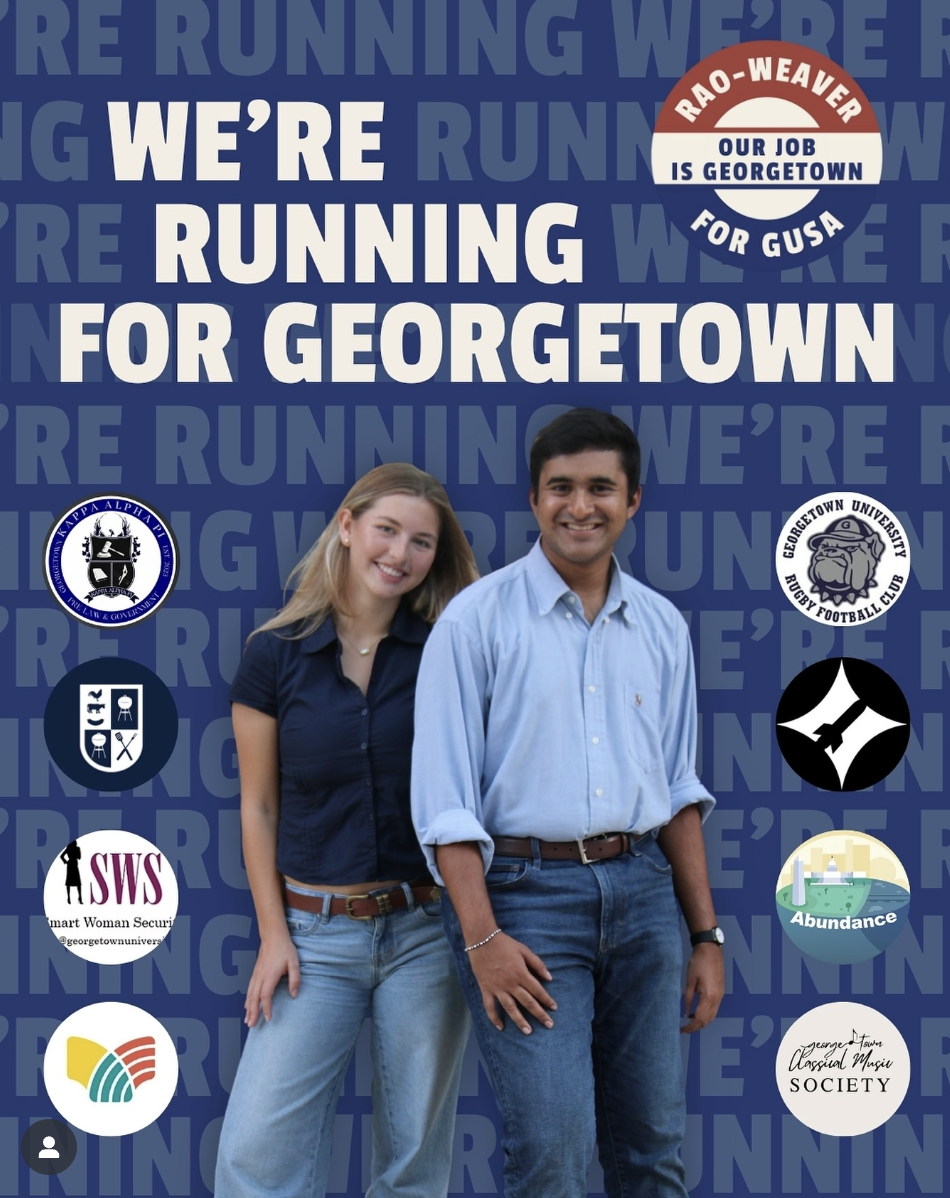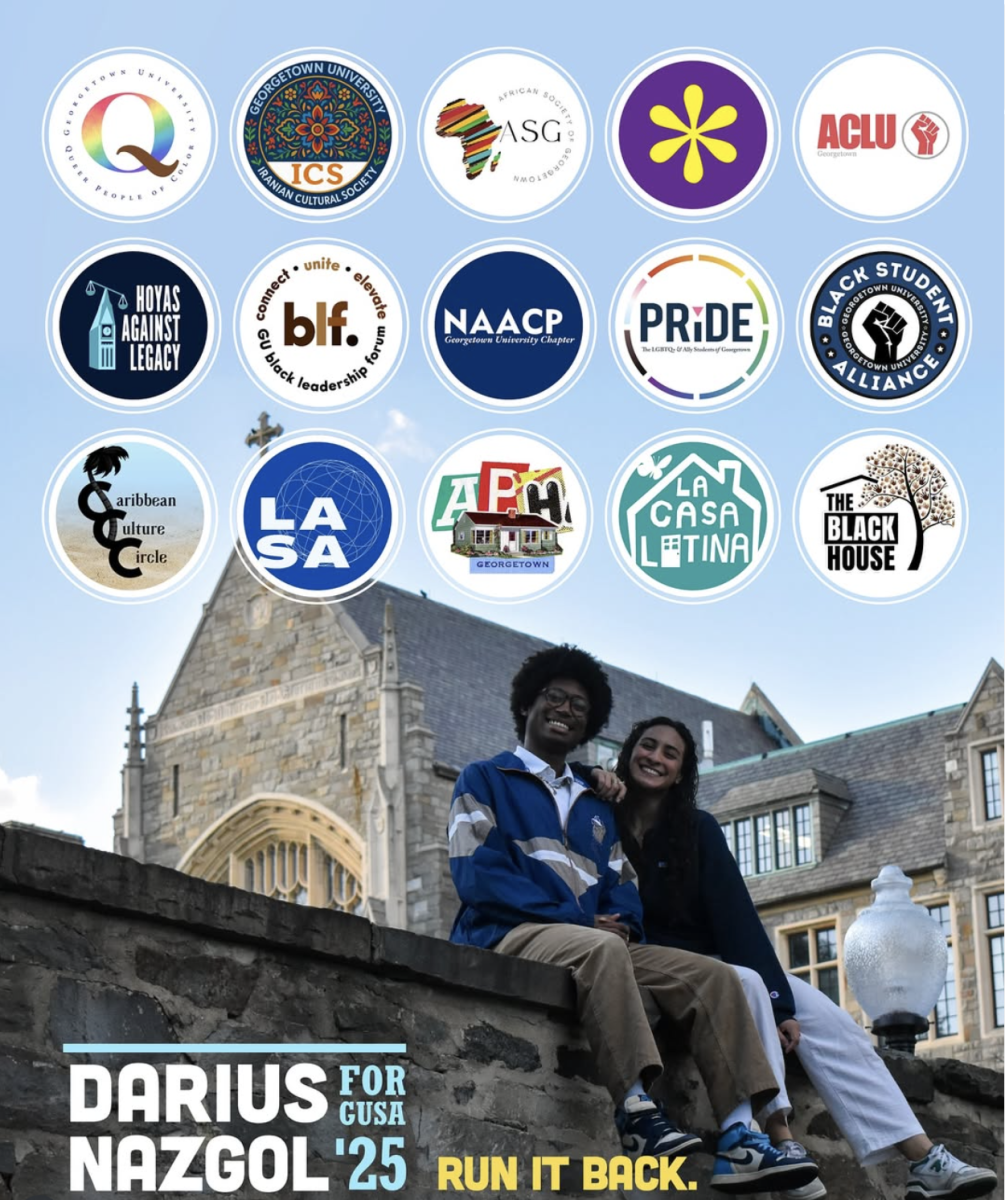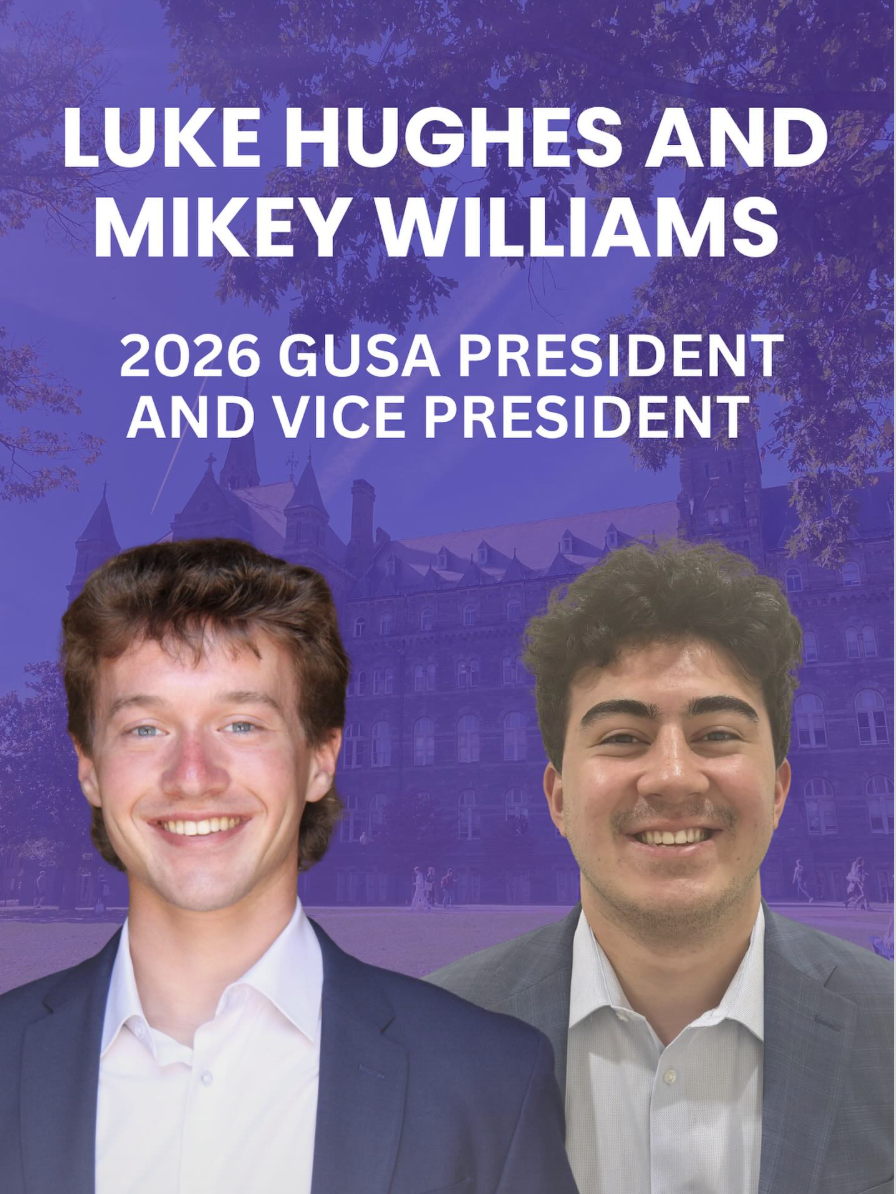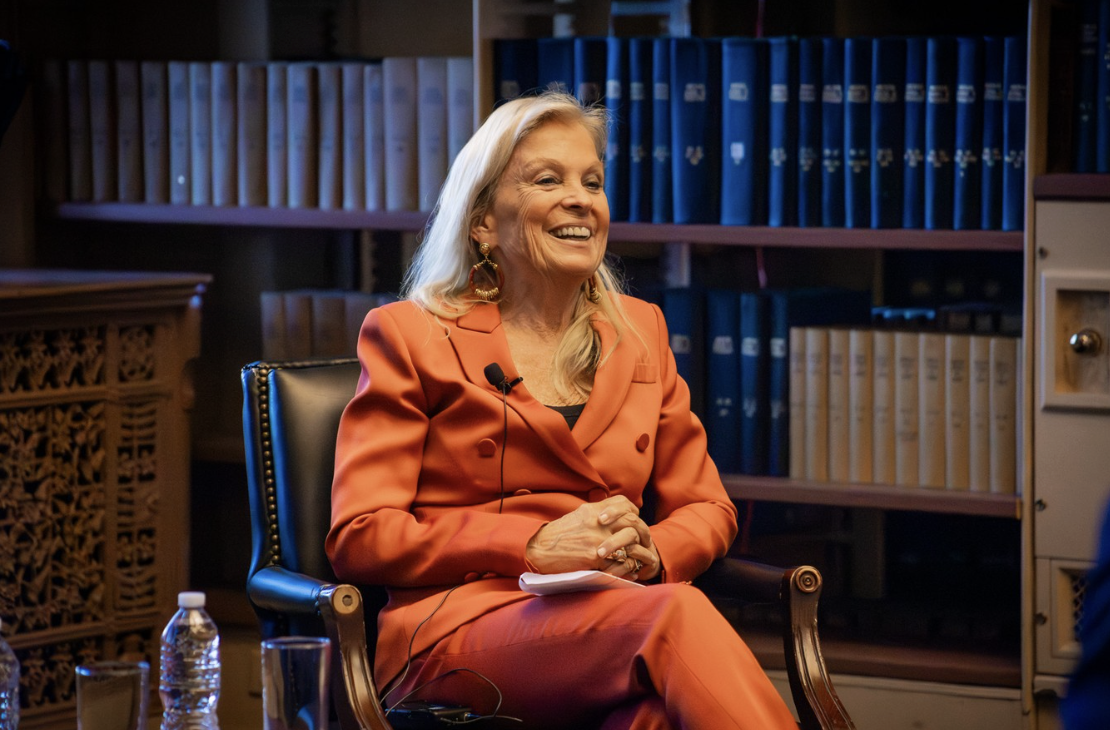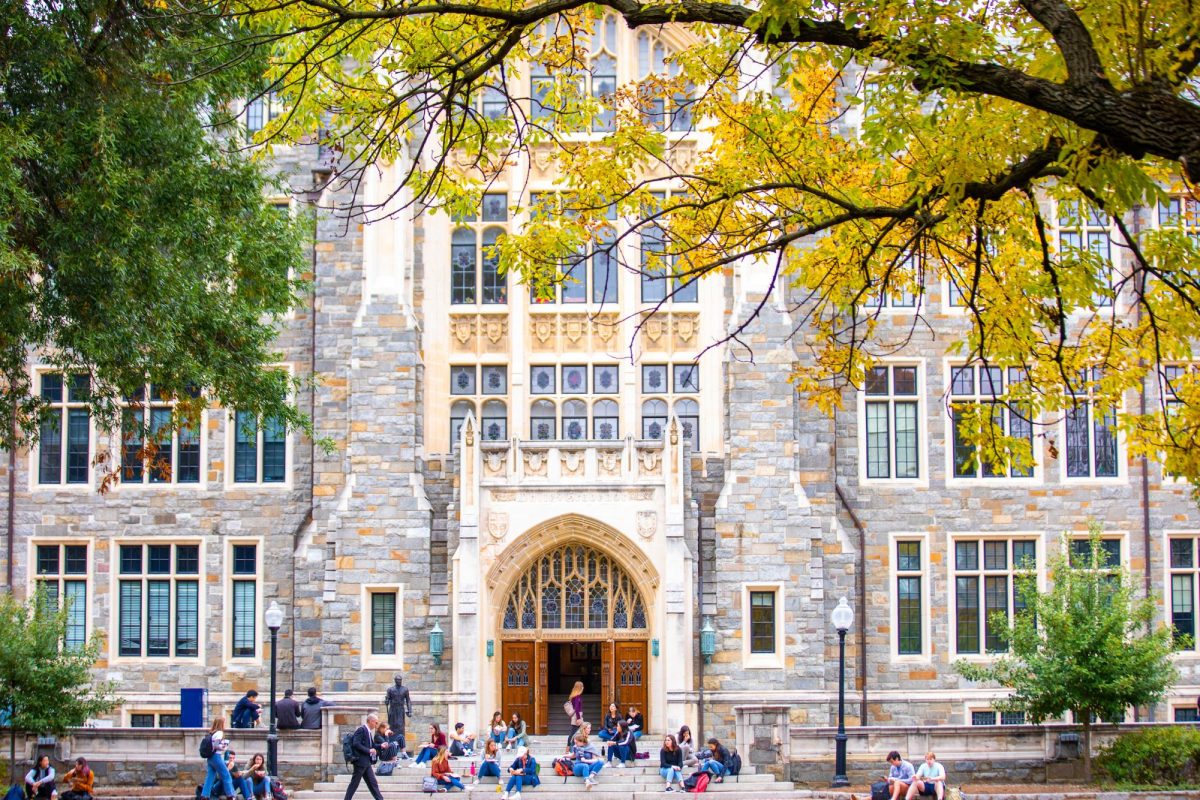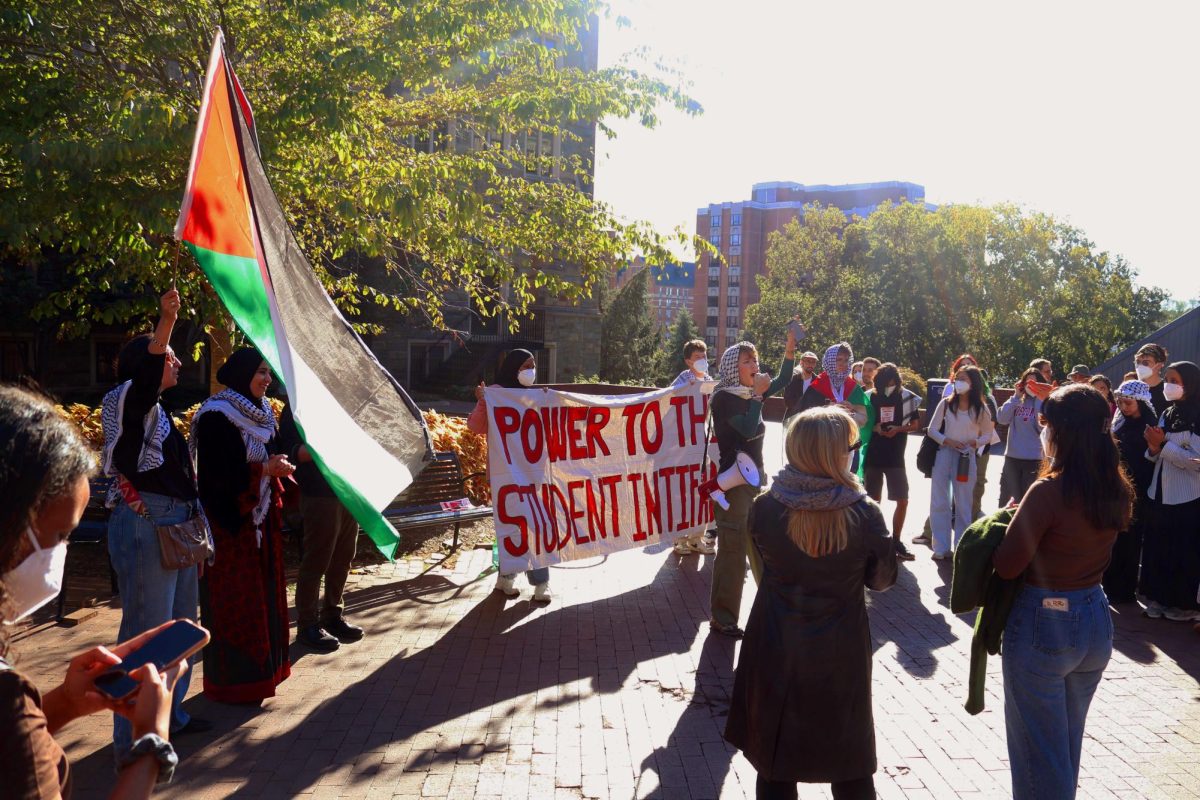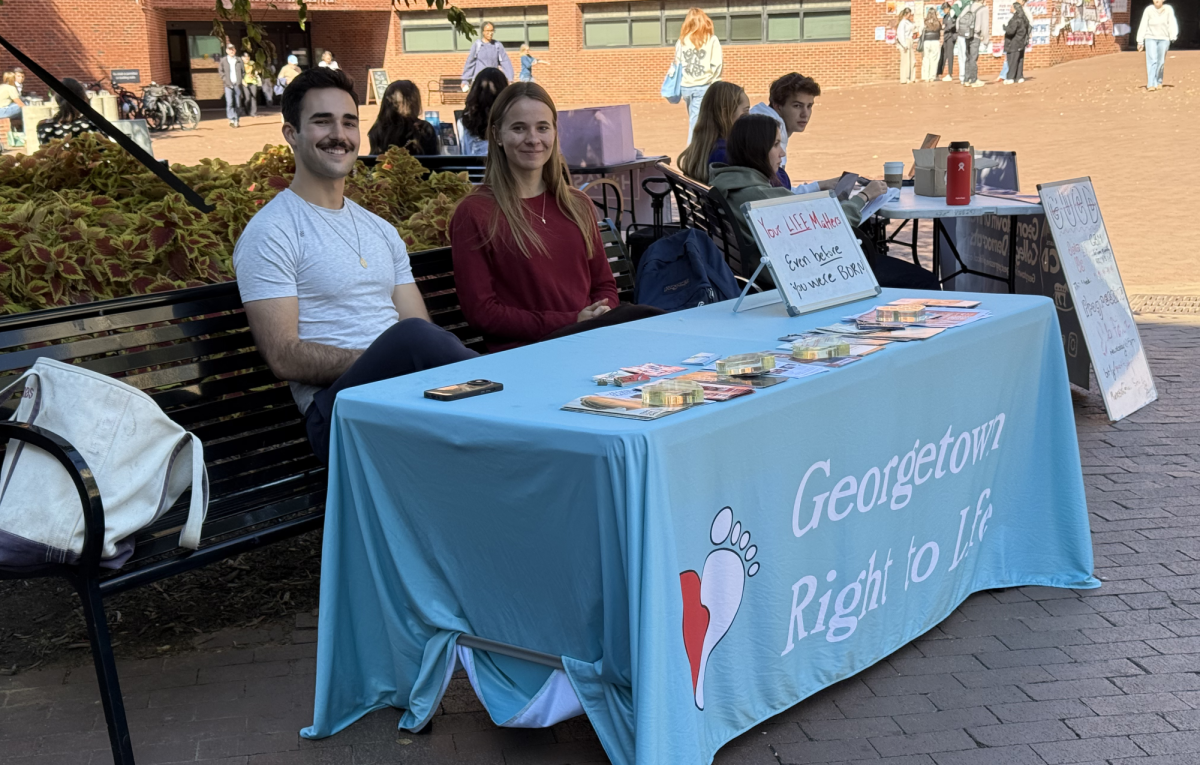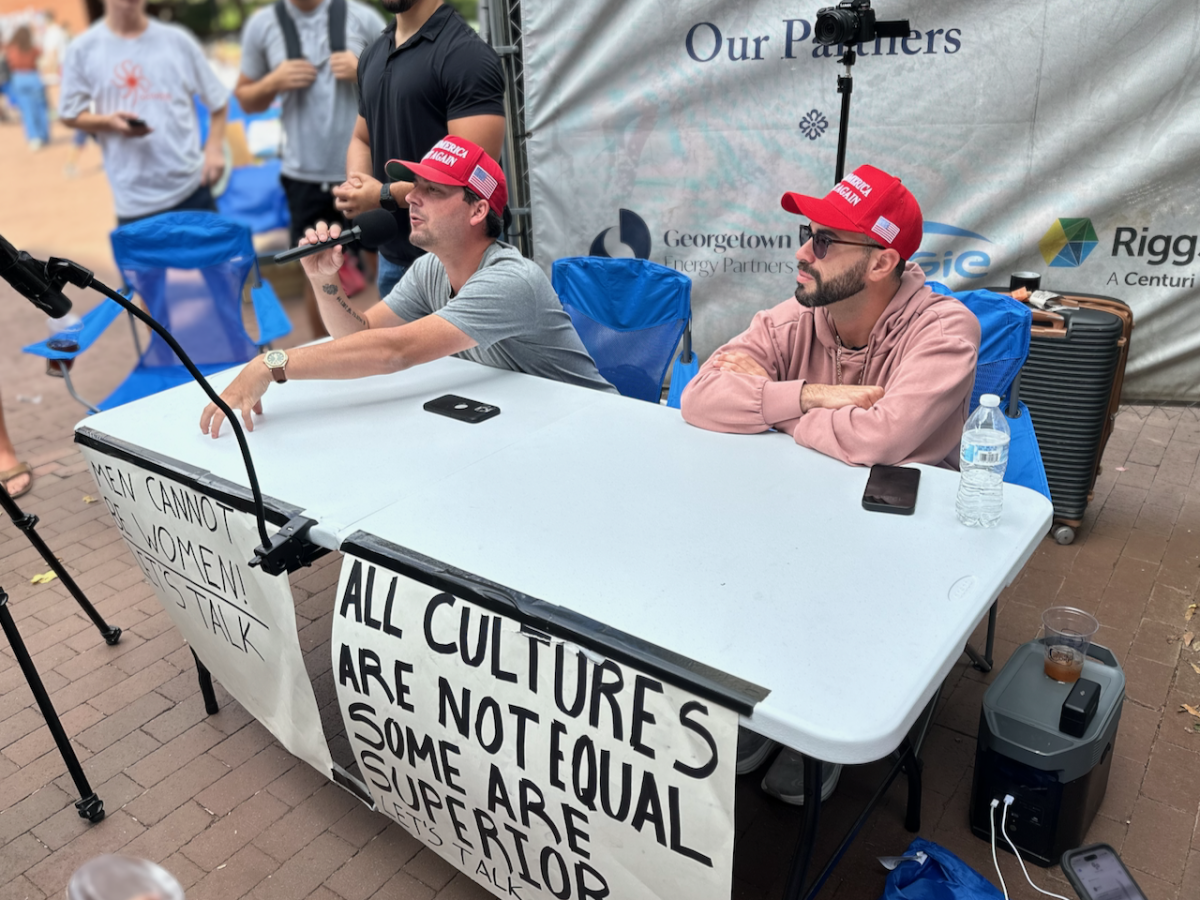Seventeen queer women competed for two titles of most performative masc lesbian and most performative femme lesbian at Georgetown University’s performative lesbian contest Sept. 21.
The contest followed a Sept. 14 student-organized “performative man” contest, this time exemplifying the pinnacle of masculine (masc) and feminine (femme) lesbian stereotypes in an organic and loosely organized gathering. Both archetypes of masc and femme have more extensive histories than that of the performative man and feature more traditionally masculine or feminine, respectively, characteristics of dress, interests and appearance.
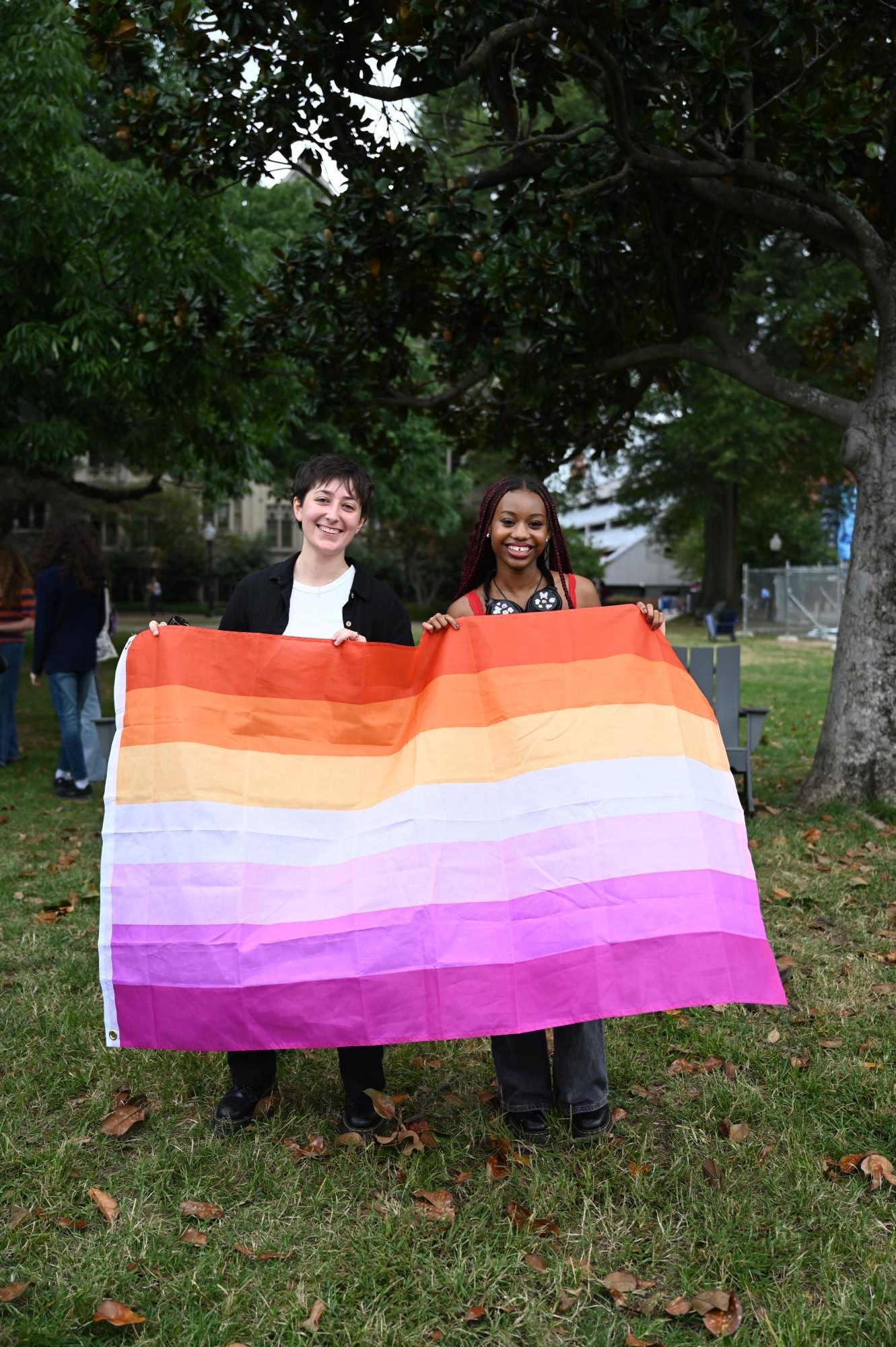
College campuses across the United States have hosted performative lesbian contests as a spinoff of the performative male trend; GUPride, a student organization supporting the LGBTQ+ community, promoted Georgetown’s contest.
Paige Benish (SFS ’28), who oversaw the contest’s ceremonial duties, said they wanted the contest to bring together queer people on campus in a different way than a formalized event would.
“This campus is like a desert when it comes to queer people. It’s not that there’s no queer people; it’s just that this is such not a liberal arts campus.” Benish told The Hoya. “This is a psyop to spot all the queer people and get them in one location so we’re not spread out — to get all the queer people together in a way that’s not institutional and more funny and silly.”
More than 100 students congregated on Copley Lawn Sunday afternoon to watch as four femmes, 12 mascs and one uncategorized contestant donned flowy pastel patterns, cargo shorts, oversized sweater and — of course — carabiners with many an affixed lesbian sundry token.
Benish took the contestants through a series of questions, some of which poked fun at the trope that lesbians are overly emotionally attached to new and past lovers.
“Is it acceptable to be friends with your ex?” Benish said at the contest. “How many weeks do you have to know each other before it’s okay to move in together?”
The contest also played on masc and femmes stereotypes, asking the mascs to guess the price per hour of renting a UHaul truck.
The final round of questions was a “fit check” where competitors could show off their outfits and any props they brought to make their cases before the crowd and judges. Contestants displayed mixtapes and knit scarves given to them by ex-partners, multiple Japanese Breakfast albums, outerwear passed down from dads and — reminiscent of the performative men — books by bell hooks and Simone de Beauvoir.
After Benish asked attendants who were not queer women to remove themselves from the electorate, the judging panel and a cheering crowd crowned Lili Linder (CAS ’26) and Amah Mensah-Boone (SFS ’28) as the contest’s most performative masc and femme lesbians, respectively.
Linder said her friends paid her $100 to enter the contest because she fit the masc stereotype so effortlessly, saying she didn’t need any time to prepare for the contest.
“Absolutely no preparation. Just being myself,” Linder told The Hoya. “I mean that truly, unfortunately; no performance needed.”
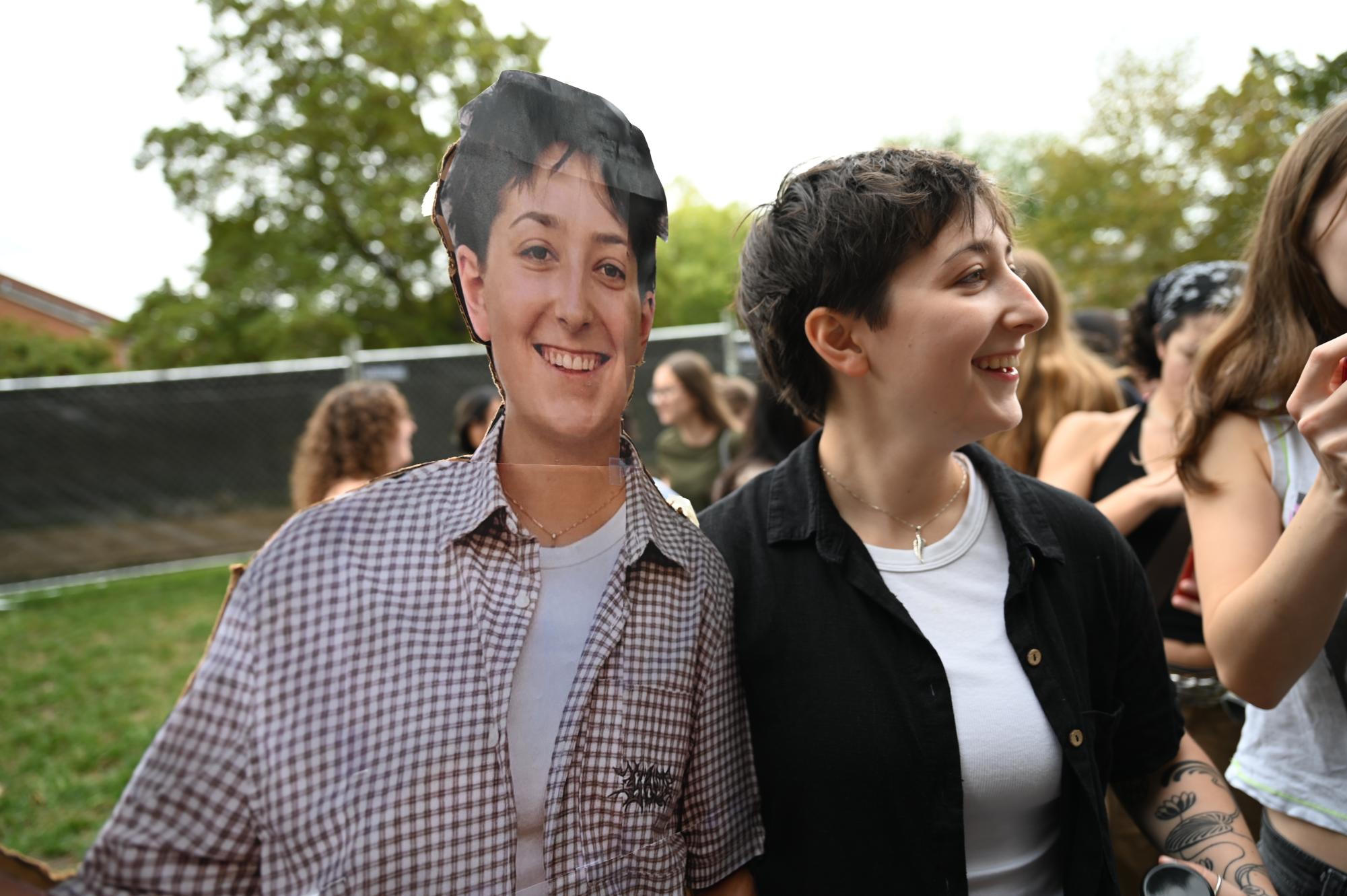
Linder captivated the crowd with pithy answers, a black short-sleeve button down, Dickies pants and a carabiner with a thrifted UHaul hat clipped to her belt loop.
Mensah-Boone showed the crowd her lesbian pride flag, a handful of Megan Thee Stallion photo cards, her most recent knit project and a denim jacket her dad thrifted in the ’80s.
Mensah-Boone said it was powerful to visibly celebrate lesbian culture in a political climate where queer people are being increasingly targeted.
“Lesbian’s like a bad word nowadays,” Mensah-Boone told The Hoya. “So I like that people actually came out and supported and were at least willing to talk about being a lesbian and lesbian culture in front of other people.”
“Being able to do events like this, especially when you know the government right down the street really does not approve of queer expression, is really important,” Mensah-Boone added.
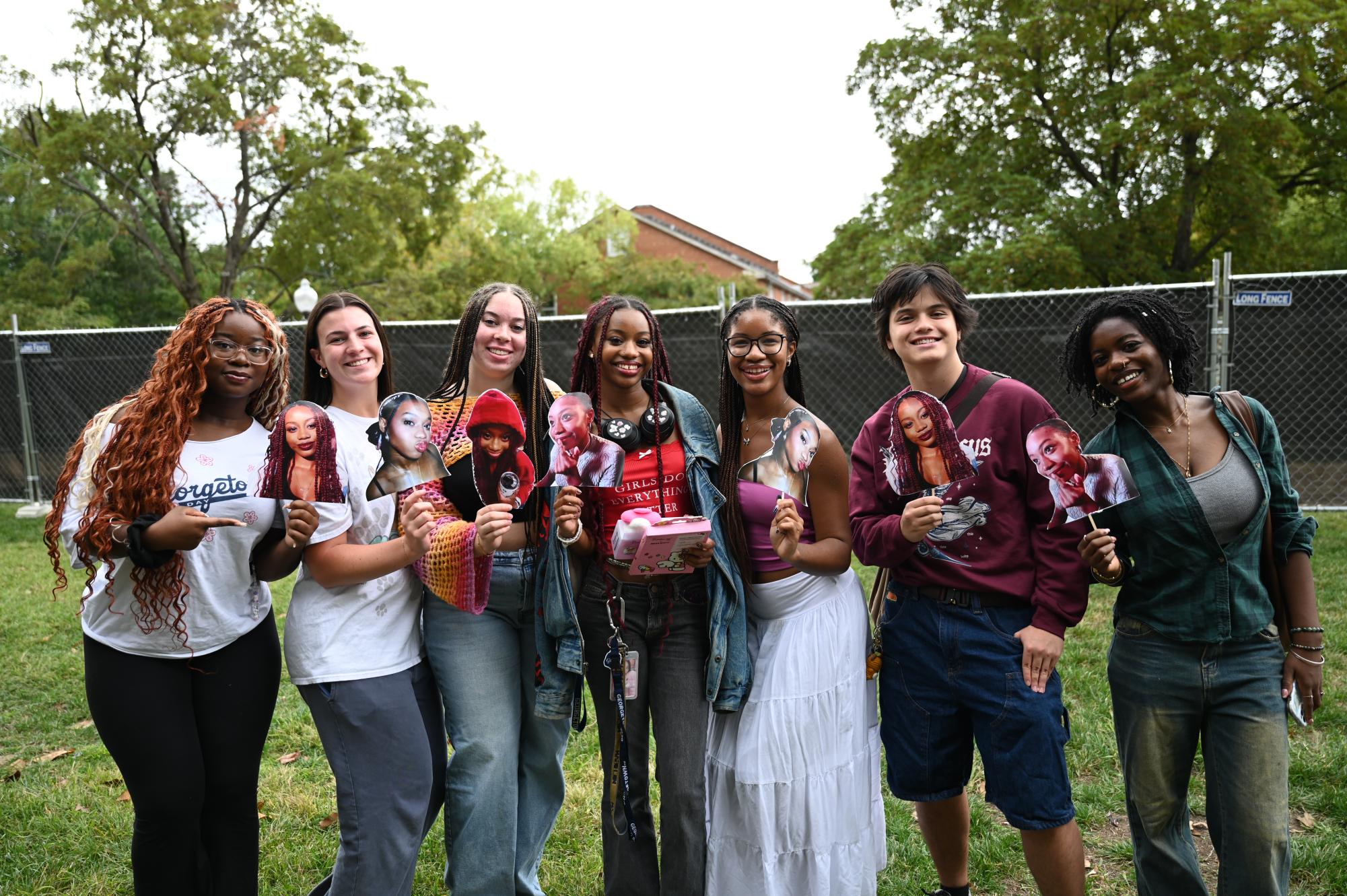
The administration of President Donald Trump has issued multiple executive orders pertaining to the rights of LGBTQ+ people, including limits to gender-affirming care for minors and changes to the federal bureaucracy’s language that exclude language recognizing transgender identities.
Benish, after the festivities, said the contest was meant to bring joy for the queer community at a politically troubling time.
“This is a time where it’s very hard to be queer, given the administration and the constant news — I don’t go to bed at night feeling very happy,” Benish said. “So we need events that’s celebratory and fun, and celebrating ourselves instead of living in constant news cycles of this and that that’s terrible for queer people.”
“We need silliness,” Benish added.



